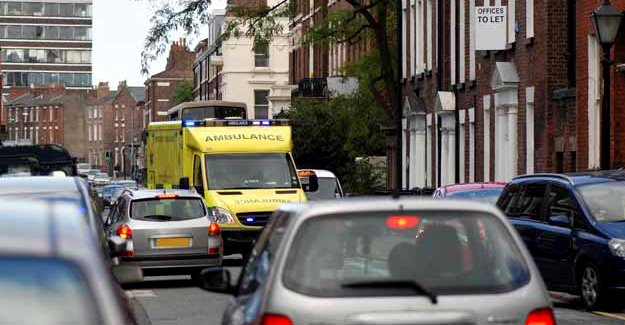Road safety since 2010
New casualty reduction targets need to be introduced if the recent increase in people being hurt on the roads is not to be repeated.
On Thursday (24 September) the government will release detailed casualty figures for 2014. These will show that last year in Great Britain 1,775 people died on the roads (a 4% increase on the year before). 22,807 more were seriously injured (a 5% annual increase).
While today’s casualty figures are still significantly below those seen when the coalition government came to power, much of the reduction came in 2010, the general election year, and the 2014 rise is the second in the last four years.
The figures come against a backdrop of reduced spending on road safety at local level and a concern that the lack of a national target has led to a lack of focus and loss of impetus particularly in England.
A survey of 34 English local authorities found that when it came to road safety:
- 85% thought the changes in resources and capacity since 2010 had had a negative impact
- 76% thought the changes in national leadership and strategy were detrimental
- 60% rated progress in road safety overall as poor
The figures are revealed in Road Safety Since 2010 published by the RAC Foundation and PACTS, and compiled by PACTS and Road Safety Analysis.
(An interim report was published in May 2015.)
The report also highlights how despite the general downward trend in death and injury on the roads over the past five years, progress has varied dramatically across the UK.
Compared with the 2005-9 average (the government’s baseline for monitoring progress) by 2013 there had been the following reductions in the number of people killed or seriously injured (KSI):
|
|
Number of KSIs, 2014 |
% change in KSIs (2014 compared to 2005-9 average) |
|
London |
2,170 |
-40% |
|
Northern Ireland |
789 |
-34% |
|
Scotland |
1,894 |
-31% |
|
UK AVERAGE |
25,371 |
-19% |
|
England (excluding London) |
19,255 |
-17% |
|
Wales |
1,263 |
-6% |
While car occupant safety has improved markedly, the situation amongst vulnerable road users (pedestrians, cyclists, motorcyclists) has been less good. Although deaths in this group have declined they are now a larger proportion of all road deaths, rising from 46% in 2005-9 to 50% in 2014. The absolute number of cyclists seriously injured has risen by 42%. This might partially be explained by the rise in the numbers cycling.
Road casualty trends are not just influenced by policy decisions: external factors such as traffic volumes and travel trends also play a part. For example, fewer car miles were driven (and at lower speeds) during the recession, while the number of cyclists has risen.
Steve Gooding, director of the RAC Foundation, said:
“Because of a lack of central focus, and faced with swingeing budget cuts, English councils have not prioritised road safety and have seen a lot of experienced staff leave.
“We also need to see more systematic sharing of best practice. Why has Scotland managed to achieve a decline of nearly a third in those killed or seriously hurt on the roads over the past five years while Wales has only managed a fifth of that?
“Cars have become much safer, but this has predominantly benefitted car occupants and today half of fatalities are amongst vulnerable road users such as cyclists and pedestrians.
“We should be proud of our long-term road safety record, but new impetus is needed to protect it. It was a Conservative transport minister who set a challenging casualty reduction target in 1987. We hope today’s Conservative government will be persuaded to follow the same successful path.”
ENDS
Contacts:
Philip Gomm – Head of External Communications – RAC Foundation
020 7747 3445 | 07711 776448 | [email protected] | 020 7389 0601 (ISDN)
Notes to editors:
The RAC Foundation is a transport policy and research organisation that explores the economic, mobility, safety and environmental issues relating to roads and their users. The Foundation publishes independent and authoritative research with which it promotes informed debate and advocates policy in the interest of the responsible motorist. The RAC Foundation is a registered charity, number 1002705.
The Parliamentary Advisory Council for Transport Safety (PACTS) is an All-Party Parliamentary Group and a registered charity, number 1068607. Its charitable objective is “To protect human life through the promotion of transport safety for the public benefit”. Its aim is to advise and inform members of the House of Commons and of the House of Lords on air, rail and road safety issues. It brings together safety professionals and legislators to identify research-based solutions to transport safety problems having regard to cost, effectiveness, achievability and acceptability. In recent years it has paid increasing attention to the links between transport safety, sustainability and public health.
This is a link to the embargoed report:


